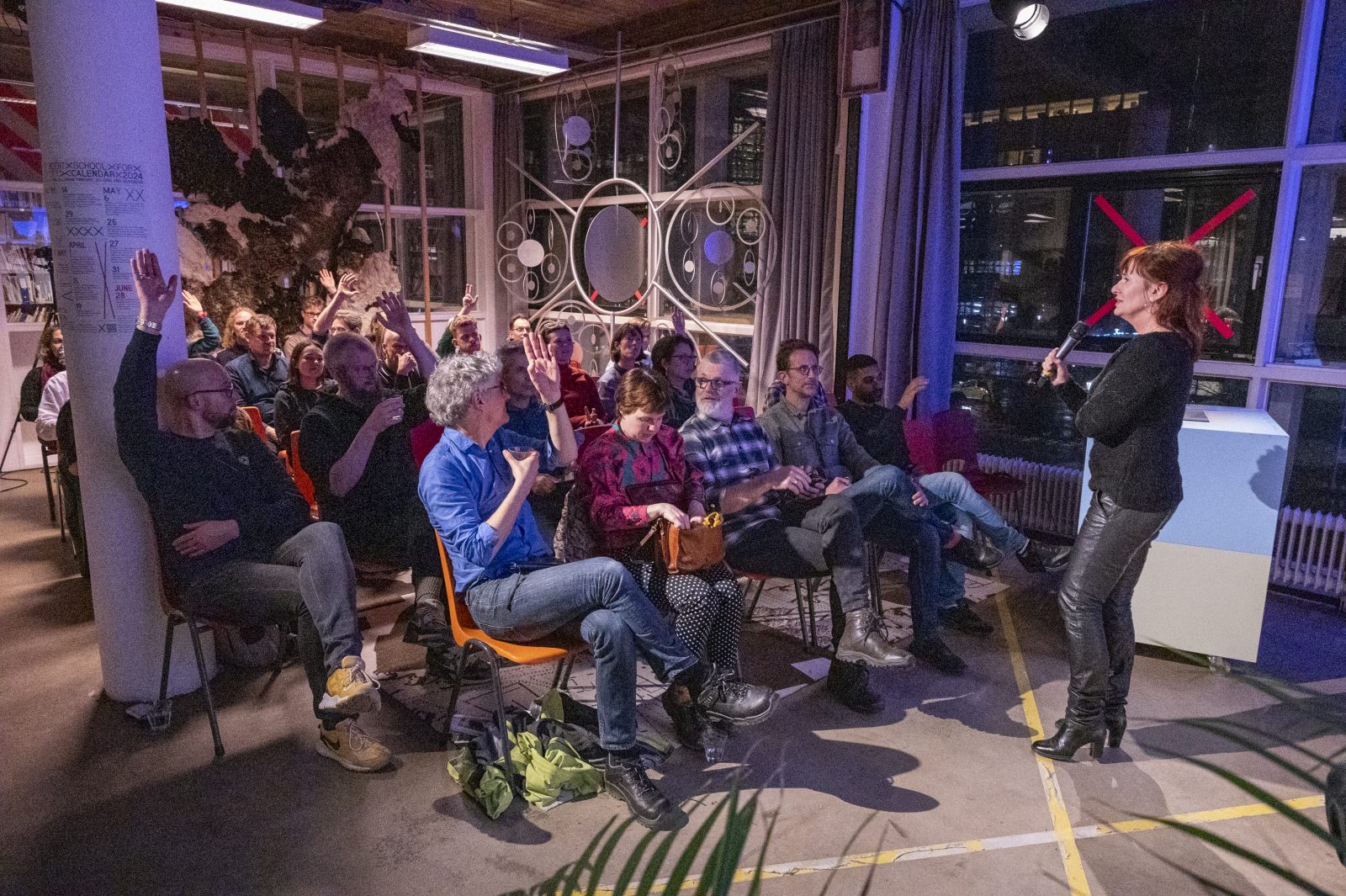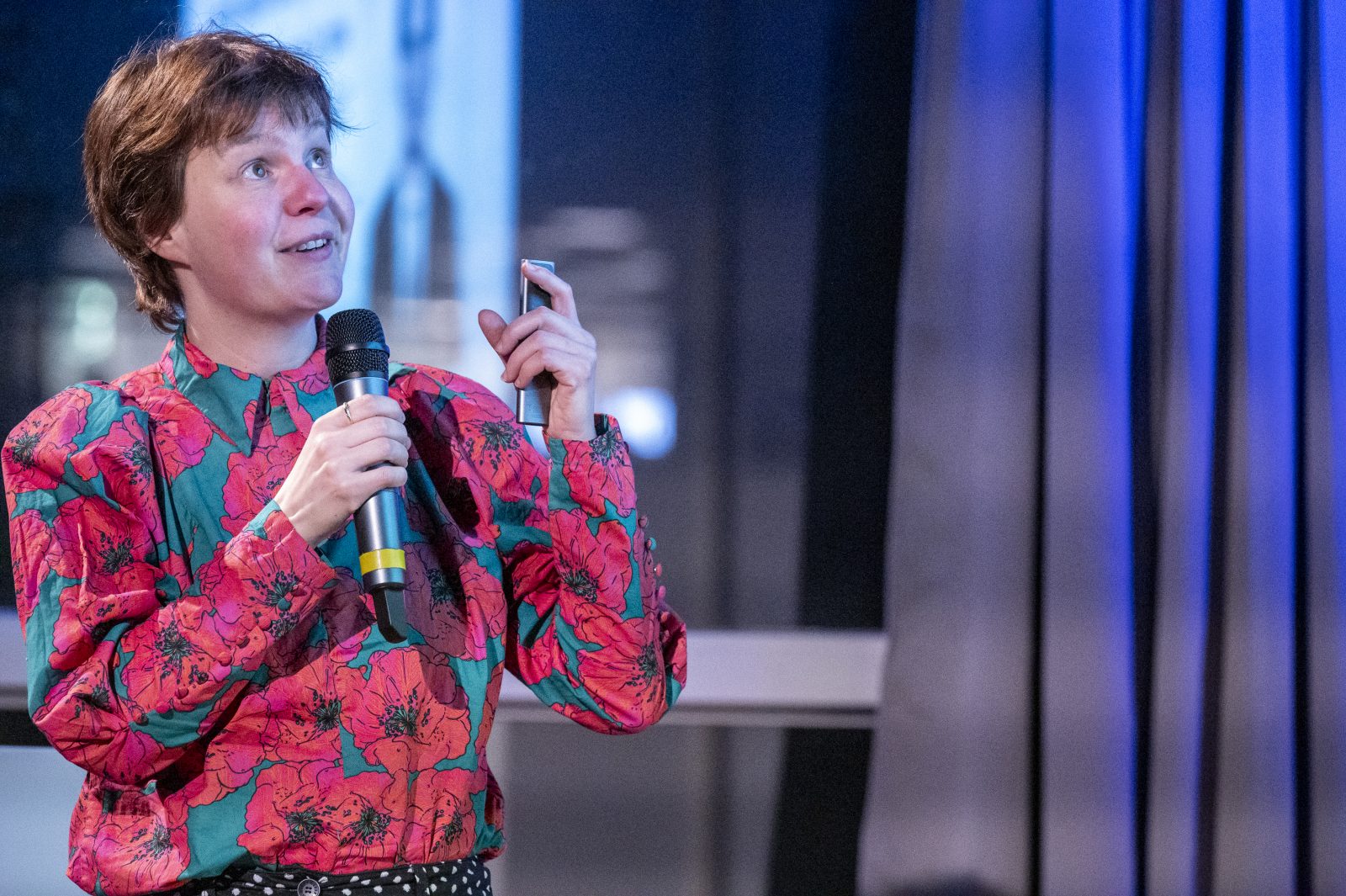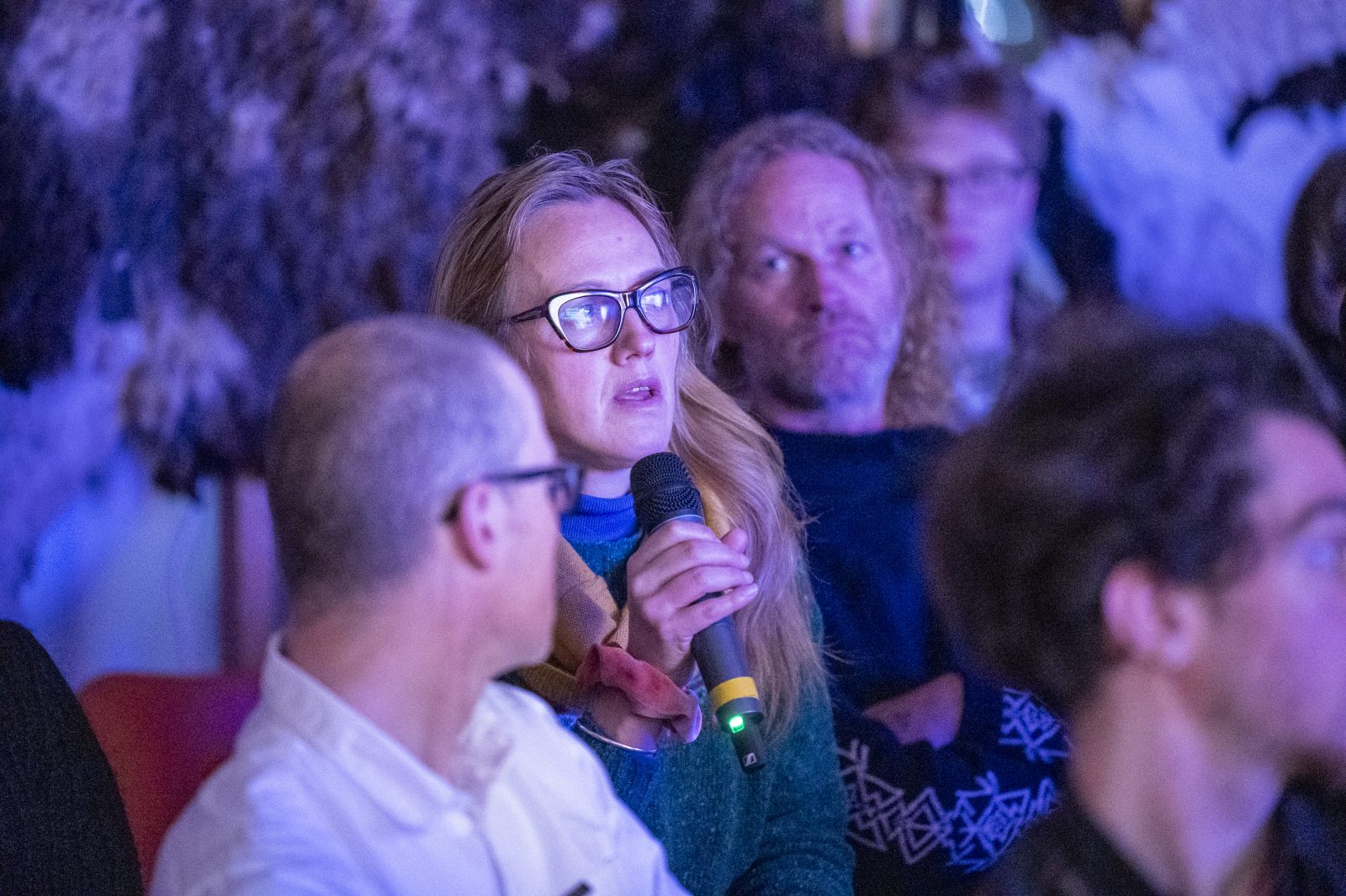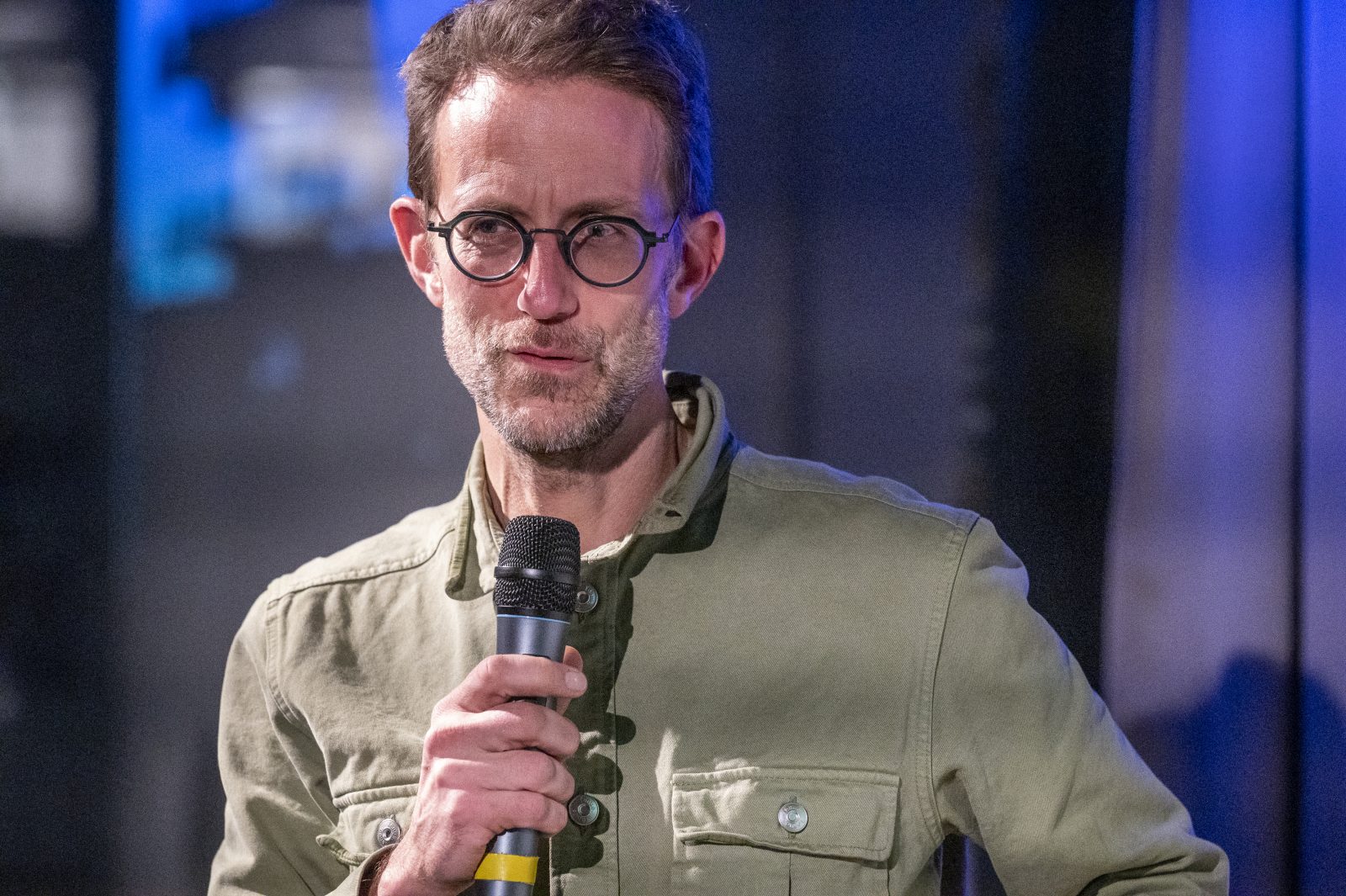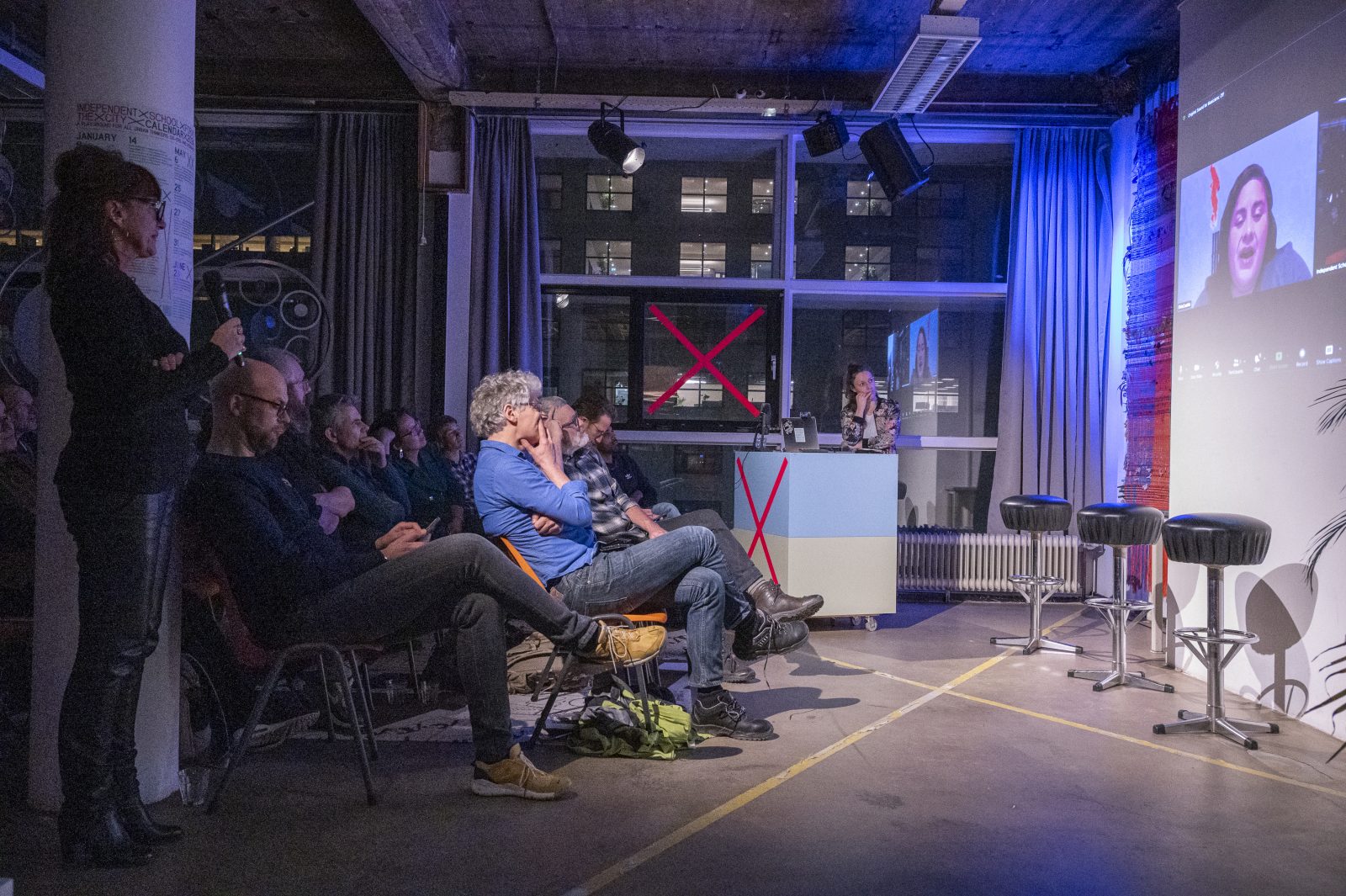Back to School with…One Planet Port - Session #2
architecture for transition of global trade
Sessione #2 of Archtiecture for Transition of Global Trade on the Global Perspective, with Merel Segers, Joris van de Sandt (PAX), Elida Castillo (Chispa LCV) & Inge Janse. Tuesday 5 March 19:00 – 21:00.
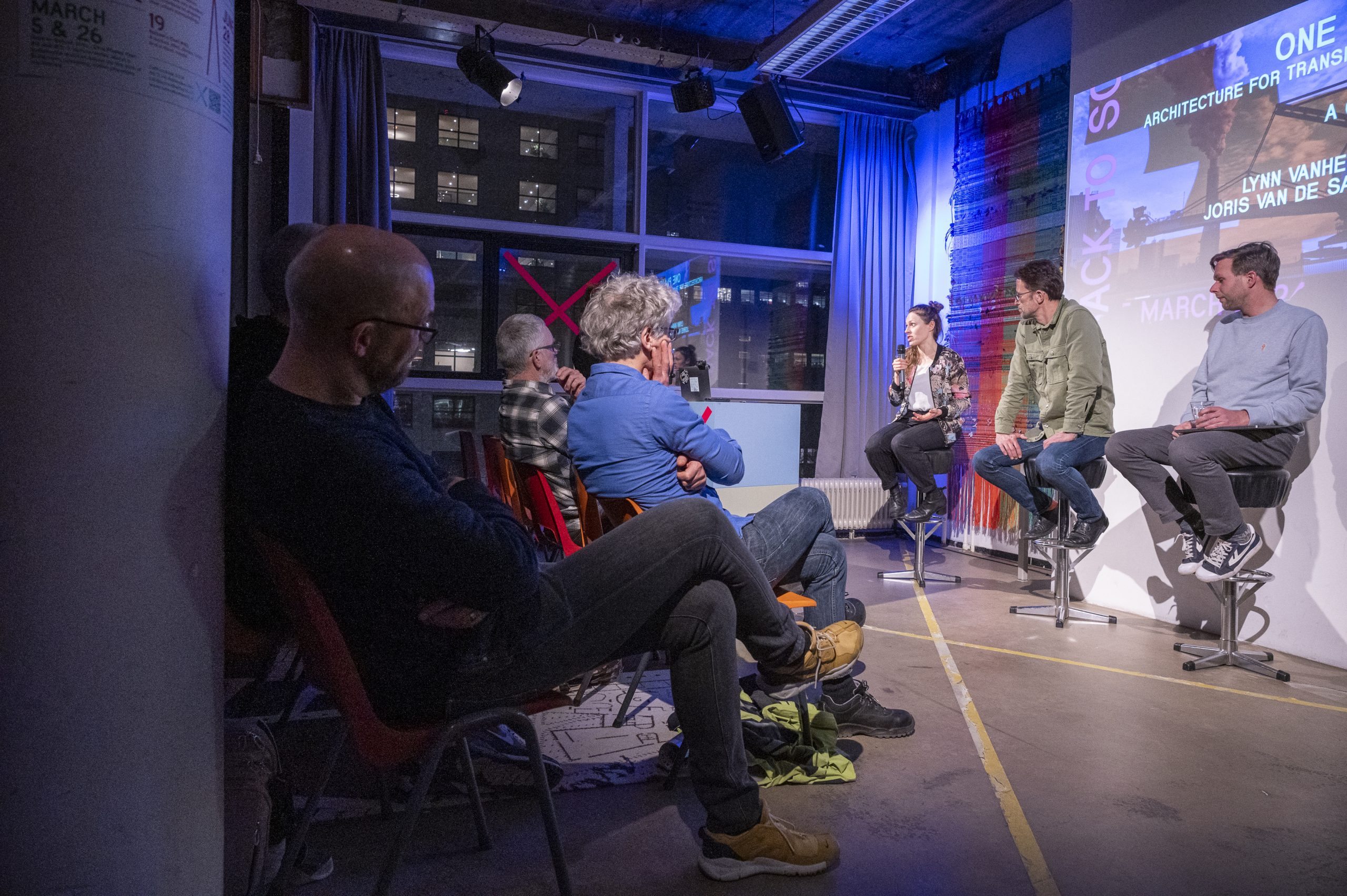
For the second instalment of our three-part lecture series, Back to School With… One Planet Port, we talk about the future of the Rotterdam port, one of the biggest in Europe and a defining element for the city’s identity and economy. In this second session, we focused on the indirect environmental impact of the port. First, Merel Segers presented her research on the carbon footprint of the port, seen through the lens of lifecycle emissions. Subsequently, Joris van Sandt of PAX for Peace presented this NGO’s research and work on the effect of coal mining in Colombia, of which much of the yield is imported to Europe through Rotterdam, on the local environment and communities. Finally, Elida Castillo from Chispa LCV, located in Texas, USA, discussed her community’s struggle for environmental justice against local Liquified Natural Gas (LNG) producers. Inge Janse wrapped up the night with a comedic performance.
Sessione #2 - A Global Perspective
The significance of the port extends far beyond its national borders. It serves as a pivotal hub for the transshipment and production of fossil fuels, exerting profound effects on both people and ecosystems abroad. Moreover, its environmental footprint is substantial, surpassing the current estimates of port carbon emissions. In this session, we delved into the port's global impacts, broadening our perspective, and examining measures needed to establish an equitable and sustainable port system.
Speakers for the evening were Lynn Vanheule of One Planet Port, Merel Segers, Joris van Sandt from PAX, Elida Castillo from Chispa LCV and Inge Janse. Merel Segers presented the results on indirect climate impact of the port of Rotterdam. Afterwards, Joris van de Sandt talked about the abuse of human rights in the worldwide chain of coal trade from Columbia. His lecture pointed to the worldwide trade-system of coal, the abuse of human rights, the ignorance of companies to act upon this abuse, and finally the responsibility of the Port of Rotterdam to act towards companies ignoring the abuse. Elida Castillo from Chispa LCV, located in Texas, USA, discussed her community’s struggle for environmental justice against local Liquified Natural Gas (LNG) producers. Finally, Inge Janse closed again the session.
Architecture for Transition of Global Trade
The port of Rotterdam holds a pivotal role in steering the momentum of change toward a sustainable global trade and transportation system. As crucial nodes in this transformation, ports serve as meeting points for global, regional, and local supply chains, facilitating the exchange of energy and materials. While these ports and their associated industries are deemed essential for the national and global economy, they are uniquely susceptible to the impacts of climate change. Despite the recognition of the imperative to align with climate targets and adhere to planetary boundaries, the pace of change has fallen short of what is dictated by these limits. This underscores the necessity for a cohesive and systemic approach to address ports, advocating for a just and equitable transition that confronts global inequities and builds local people power.
About One Planet Port
One Planet port is a new NGO in Rotterdam. We are on a quest to accelerate the ecological transition in the port of Rotterdam, underscoring its significance as a catalyst for change in global trade and transportation. What happens in Rotterdam is on the radar of all other significant ports. An apparent small change in Rotterdam can trigger widespread effects worldwide. We are rooted in the grassroots movement. We are targeting the Port of Rotterdam and the local and national government (owning and governing the Port of Rotterdam). Our mission is to transform the port of Rotterdam to operate within all planetary boundaries and to safeguard the well-being of current and future generations. We operate with our motto Making the unseen seen.
About Merel Segers
Merel Segers is an expert in measuring sustainability. With over a decade of experience in life cycle assessments and company footprints, she has assisted many organizations in making sustainable decisions. Her goal is to make a positive impact on a sustainable society, both through her professional work and volunteering efforts.
About Joris van de Sandt
Joris van de Sandt, Is an expert on the topic of business, conflict and human rights. Since 2013, he has been programme leader Latin America at the Dutch peace organisation PAX (formerly Pax Christi). In addition, he has been conducting research and teaching at various Dutch universities for more than 25 years on a variety of topics related to peace work, conflict over natural resources and supply chain responsibility.
About Inge Janse
Inge Janse is an investigative journalist, columnist and presenter. He works for the national news medium Algemeen Dagblad.
Programme
18:00 - 19:00 Doors open and dinner served
19:00 - 19:10 Welcome
19:10 - 19:20 Introduction by One Planet Port - Lynn Vanheule
19:20 - 19:35 Lecture by Merel Segers
19:35 - 20:05 Lecture by Joris van Sandt (PAX)
20:05 - 20:20 Lecture by Elida Castillo (Chispa LCV) - online
20:20 - 20:25 Article by Inge Janse
20:25 - 21:00 Panel discussion with speakers from session #1 & session #2
